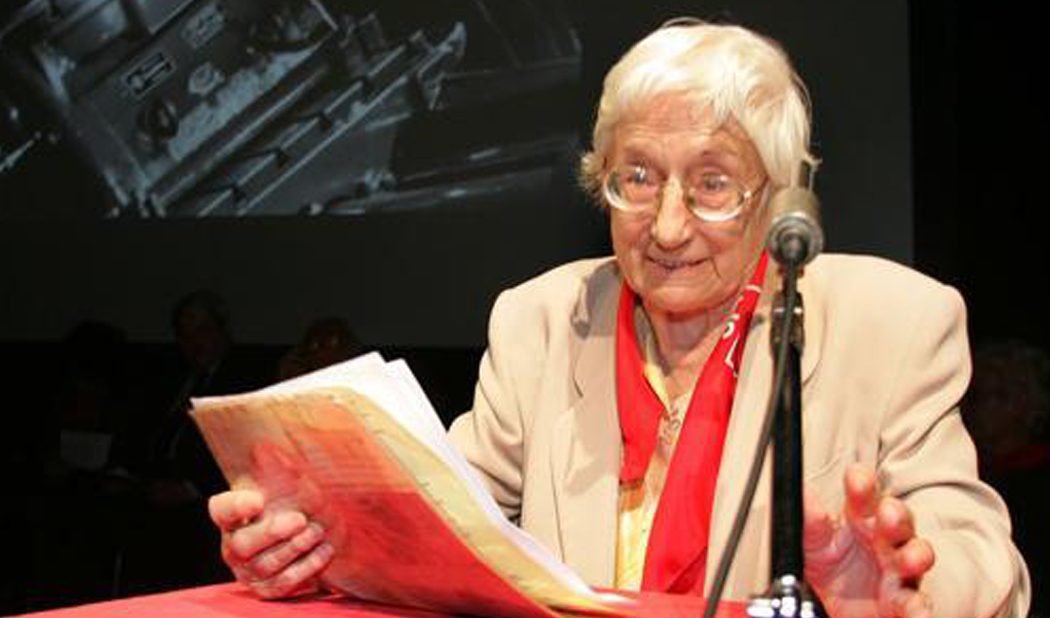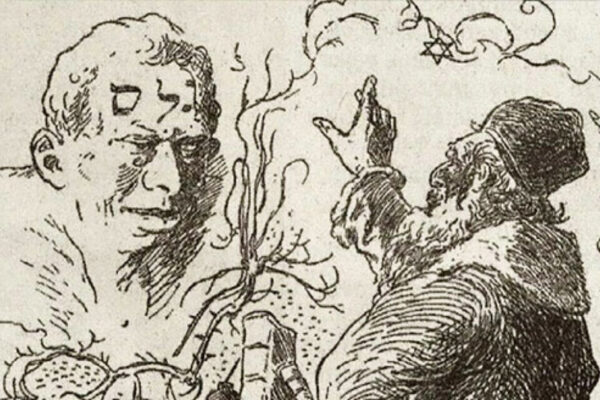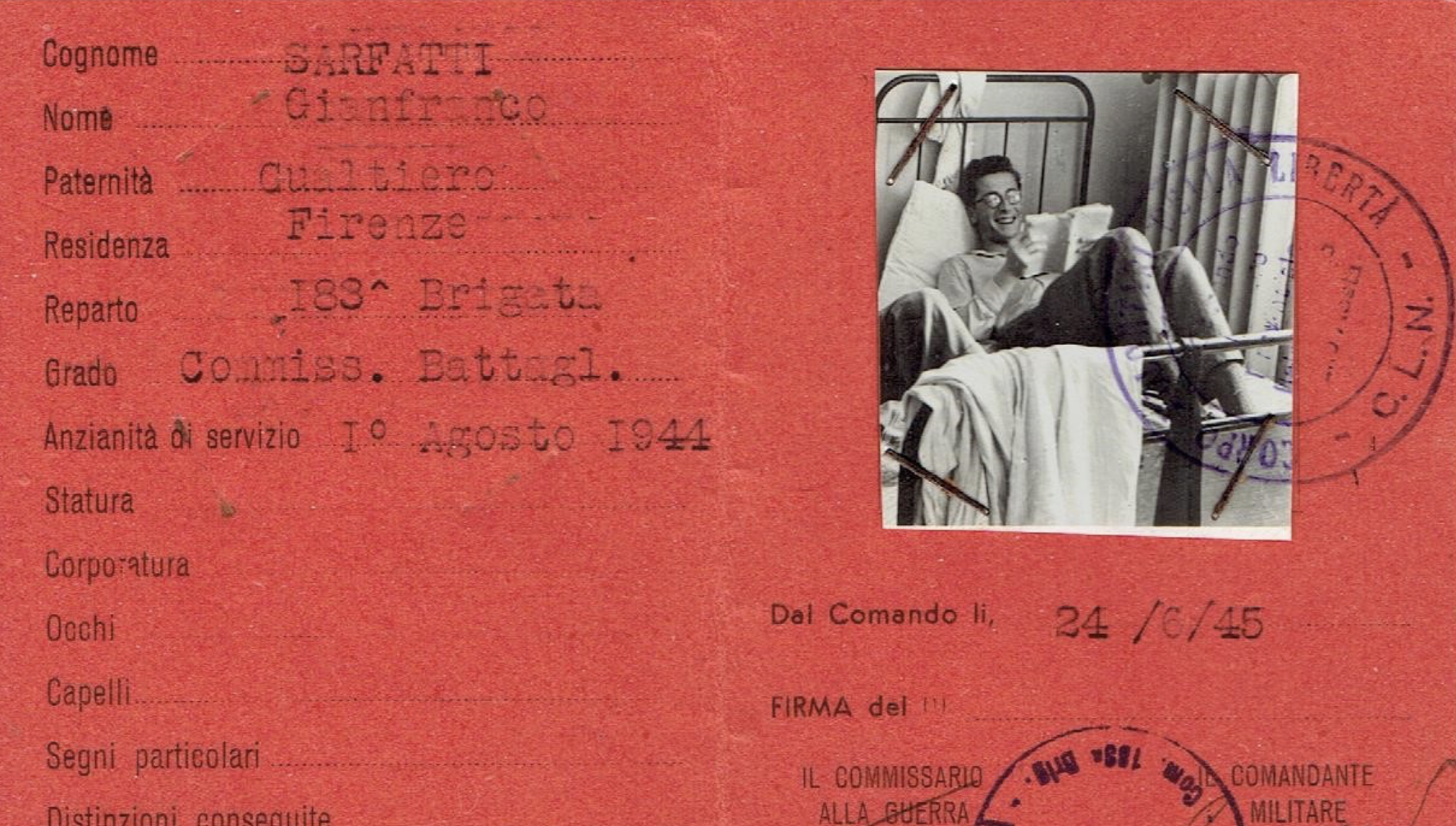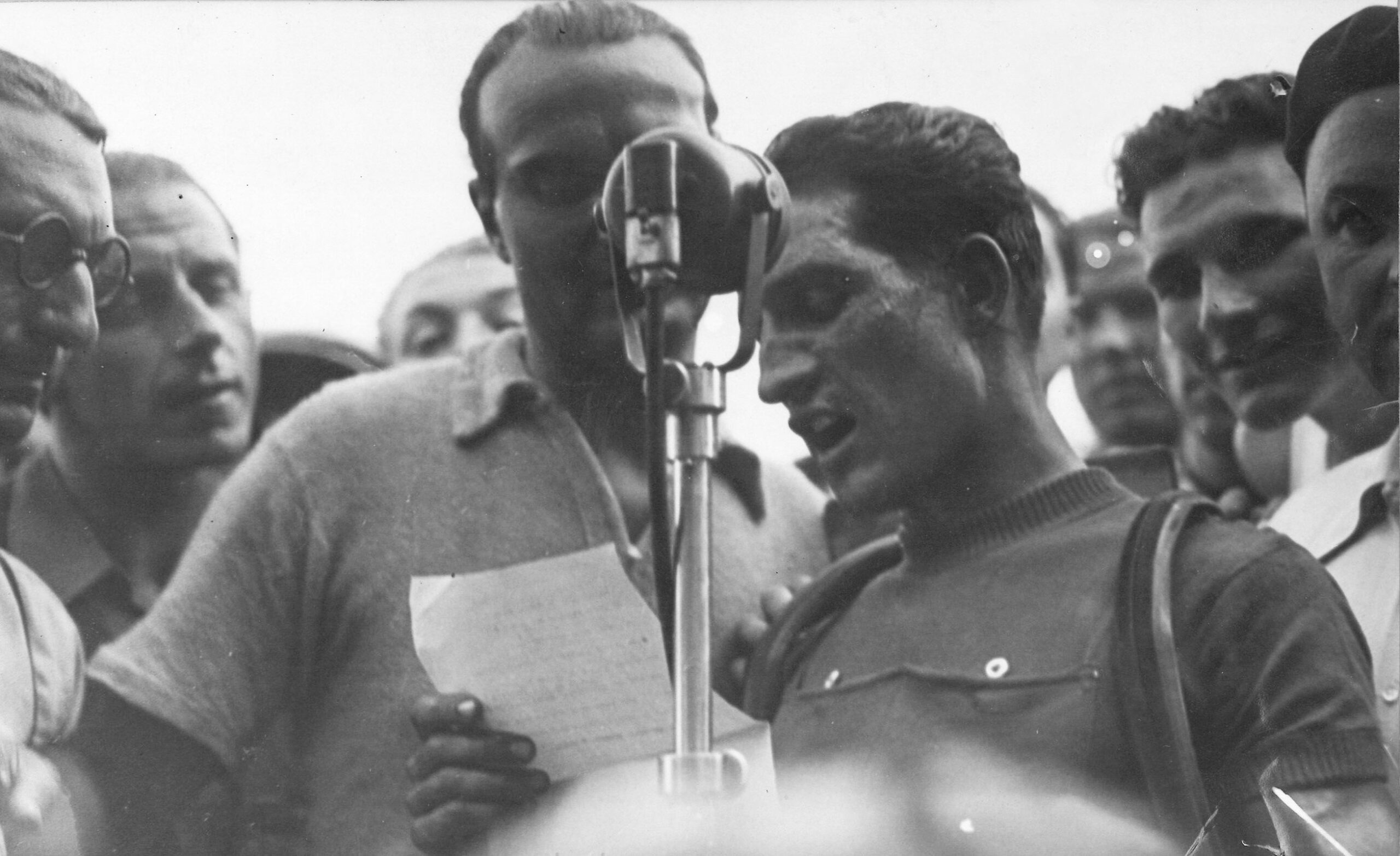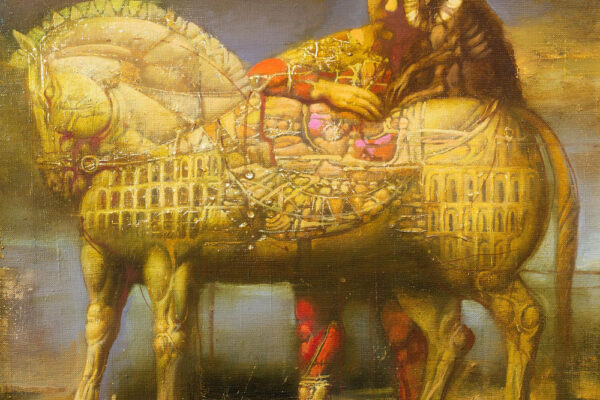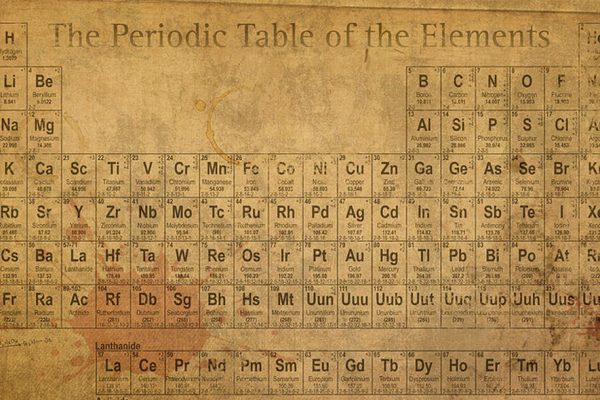On January 25th, 2016, was a special evening at the Italian Cultural Institute. The occasion was the launching of Primo Levi, The Friend by Bianca Guidetti Serra, CPL Editions, 2015. The book offered at once the opportunity to discuss the theme of friendship — central to much of Levi’s work— and to mark the 100th anniversary of Bianca Guidetti Serra.
Following opening remarks by the Director of the Italian Cultural Institute, Giorgio Van Straten and an impassioned reading by Stella Levi, I weaved together some of the crucial moments of Bianca and Primo’s life long friendship. The evening was rounded by Guri Schwarz’s (Università di Pisa) insightful reconstruction of the antifascist milieu in Turin where Levi and Guidetti Serra came of age.
Here are my remarks for the occasion.
This evening we will tackle a more private and intimate side of Primo Levi: the topic of friendship.
Levi’s memoirs and reflections on life in the concentration camp, and on the relationship between captors and captives have made him one of the foremost witnesses of the Shoah. And beyond the Shoah, Levi continued to bear witness to the ever-present dangers of totalitarianism and the crushing of human rights.
The role of the witness is a terribly difficult burden, one that exacts a heavy price. It seems to me that every witness, in turn needs his own witnesses. Throughout his life Primo Levi elected to have Bianca Guidetti Serra as a witness to his own life.
Tonight we are going to speak of Bianca Guidetti Serra regarding her lifelong friendship with Primo Levi.
Yet, as I was thinking about how to best introduce this formidable woman, it became clear to me that we must dedicate an event solely to her, sometime soon.
She was born in Turin in 1919, between the two World Wars, into a family of modest means: her mother was a seamstress and her father, born in Buenos Aires to Italian emigrants, returned to Turin to study literature and law. He practiced law all his life, but in Bianca’s estimation, he lacked the aggressiveness needed in the profession. His passion remained literature, poetry in particular.
Growing up under Fascism she recalls that politics were never discussed at home, yet she detected a certain irony in the tone with which her parents referred to the Regime’s outward manifestations. As a girl she was an avid reader, and among the books her father gave her she was particularly enthralled with My Life by Leon Trotsky. This was her first encounter with the idea of revolution and social change.
She recalls becoming “instinctively “ anti-fascist while still a teenager.
Bianca and Primo Levi met while attending Liceo Classico Massimo D’Azeglio, the most distinguished highschool in Torino, where Cesare Pavese had taught literature. Liceo D’Azeglio is where Emanuele Artom, as well as many of the city’s key anti-Fascist figures of the preceding generation, such as Vittorio Foa, Giancarlo Pajetta, Leone Ginzburg, Norberto Bobbio, just to name a few, had studied.
“Primo and I knew each other beforehand, but became really close while studying for the final exams, the maturità, she recalls. Among other things, what Bianca admired in Levi was his infectious curiosity and a desire to communicate his knowledge of the world to others “ Primo had a gift for observation and an almost religious sense of wonder at the world”
In 1938, as the Racial Laws were announced, the walls of Torino were plastered with anti-Semitic posters. This prompted Guidetti Serra, at age 19, together with a few friends including Alberto Salmoni, whom she later married, to undertake her first anti-Fascist action. The youngsters spent the night systematically tearing the posters off the walls of the city center. In the following months and years, when many Italians were turning away from the now persecuted Jewish minority, Guidetti Serra intensified her friendship with a group of mainly Jewish students that included Primo Levi, Alberto Salmoni, Franco Momigliano, Silvio Ortona, Vanda Maestro, Luciana Nissim, Ada Della Torre, Franco Sacerdoti, Eugenio Gentili and Sandro Delmastro.
“The racial laws— countersigned by the king and approved with no real opposition—were an outrage,” she recalls; “I felt indignant, and had to take action”.
After September 1943, as the Nazis entered Turin and a manhunt for Jews began, Guidetti Serra joined the Resistance. At first she enrolled in a women’s defense formation called Gruppi di difesa della donna per l’assistenza ai combattenti per la libertà.
“It was my way to combine Resistance struggle with broad feminist demands,” she writes in her autobiography, Bianca la rossa written with Santina Mobiglia.
As early as 1944 she began a clandestine activity of legal and practical support to women working in factories in the Torino area. She helped print and distribute an underground magazine called
La difesa della lavoratrice (The defense of the woman worker). She graduated Law School in July 1943, and began to practice law, all the while physically and morally assisting partisans in hiding. Her political mentor and later friend was Ada Gobetti, the widow of early anti-Fascist activist Pietro Gobetti, who had been beaten to death by the fascist militia in 1926, at age 24. Ada Gobetti and Bianca Guidetti Serra are two towering examples of the role of women in the Italian Resistance. Ada Gobettti kept one of the few anti-fascist diaries written during the German occupation of Turin, when doing so carried an automatic death penalty. Her wartime diary, (now available in English) was published in 1956 thanks to Italo Calvino, who also wrote the foreword.
Let me backtrack to Primo Levi and share with you four extraordinary postcards. Soon after joining a Partisan group, he was arrested by the fascist militia on December 13, 1943. By the end of January he was transported to the concentration camp in Fossoli. From there, on February 22nd, he was crammed together with six hundred and fifty fellow Jews on twelve freight cars, toward an unknown destination, which turned out to be Auschwitz. On the same train with him were Vanda Maestro and Luciana Nissim. Nobody had heard from them since their arrest, but it was Bianca who received their only postcard written on the way to Auschwitz. Primo and his friends threw the postcard from the train’s window while in the station in Bolzano. On the back the postcard they wrote: “We will prevail. Please add postage.”
Against all odds someone posted it, and it reached Bianca.
The postcard read:
Bolzano February 23.
“Dear Bianca, all of us are travelling in the classic way– greet everyone for us. Now the torch passes to you. Ciao Bianca we love you”. It was signed by all three.
(“Cara Bianca, tutti in viaggio alla maniera classica— saluta tutti— a voi la fiaccola. Ciao Bianca, ti vogliamo bene” sul retro le scritte “viceremo” e “impostare per favore”)
Primo Levi chose Bianca knowing she would spread the word, and she did.
A grave silence followed, until months later, when Bianca received a second postcard, this time from the Auschwitz.
Jewish prisoners could not write from the camp, yet Primo had met there Lorenzo Perrone, a construction worker from a town near Torino, employed as a civilian by an Italian construction company. Lorenzo helped Primo in small, yet crucial ways, and Primo asked him to write and mail a postcard. On June 26, Bianca Guidetti Serra received a postcard from Auschwitz, a name that meant nothing to her, simply stating “Primo is well” (Primo sta bene). Levi could not write home to his family, by then in hiding, but knew that Bianca would find them, and this time again, she did.
Through Lorenzo Perrone Bianca received two more postcards from Auschwitz, one on August 21st and another on November 1st.
Primo Levi had managed to let his family and friends know that he was alive, and all of this was through Bianca. And again, months after the liberation of Auschwitz, while stranded in Russia, Levi wrote the first letter, as an almost free man, to the trusted Bianca:
On June 6th he writes:
We’re not too badly off here, and there’s more than enough to eat (though Russians cuisine does require a special stomach): we sleep soundly, do little work, and enjoy some limited freedom. With a bit of initiative we can roam about town and treat ourselves to the luxury of some extra food, a film or a cut-price tourist tour of the city. POWs, political prisoners and rastrellati (Non Jewish victims of Nazi round-ups). The local population is well disposed toward us, as are the Russians.
—Then he changes tone, dramatically—
Don’t believe a word of what I was able to write to you from Buna-Monovitz; my year under the SS was terrifyingly hard, owing to the cold and hunger, the beatings and perpetual danger of being eliminated if you were considered unfit for work. I’ll be coming home to Italy (I hope) with my matriculation number tattooed on my left arm; a proof of infamy.
P.S.
Maybe I’ll come home shoeless, but in compensation for my ragged state I’ve learned German and a bit of Russian and Polish. I also know how to get out of many situations without losing my nerve, and how to withstand moral and physical suffering. To economize on the barber I’m sporting a beard. I know how to make cauliflower or turnip soup, cook potatoes in a hundred different ways (all without seasoning). I know, too, how to assemble, light, and clean stoves. And I’ve been trough an incredible variety of careers: assistant bricklayer, sweep, porter, grave- digger, interpreter, cyclist, tailor, thief, nurse, fence, and stonebreaker. I’ve even been a chemist!
A letter that, as you heard, can be seen as a rudimentary beginning of Levi’s two first books.
Now back Guidetti Serra, who was among the friends who rushed to his home when he did finally return there.
Soon after the war ended, Bianca Guidetti Serra married Alberto Salmoni. Theirs was the first civil marriage in post war Turin and was celebrated by a woman, none other that Ada Gobetti, who had been elected deputy Mayor.
Guidetti Serra went on to forge an extraordinary career as a lawyer, marked by her unbreakable sense of justice. She always fought for the rights of women and children, and generally for the most disenfranchised members of society.
After the liberation she fought for the rights of factory workers in Torino, in the late 40’s she supported the struggle of the peasants in southern Italy, in the 70’s she exposed the practice within Fiat to keep political profiles of the workers, so as to prevent political and union actions. She was a defense lawyer in the first and most controversial trials against the Red Brigades and left wing terrorists. She participated to the political process after being elected first with the Communist Party and later with Democrazia Proletaria. As her range of activities expanded to human rights on a global scale, she became known as “l’avvocato dei diritti” the lawyer of civil and human rights.
She and Primo Levi remained close throughout their lives. Levi followed her career with great interest and often turned to her when confronted by moral issues deriving from current events. They shared a fierce independence of judgment and a view of democracy as a precious fragile plant that needed to be tended to and protected.
Levi also shared Guidetti Serra’s view that Fascism had not ended in 1945, and that’ traces of its afterlife could and should be detected in various aspects of Italian post war politics and society. In the 1970’s, when Franco’s Spain was still closed off to the rest of the world, Bianca Guidetti Serra, managed to visit women in jail who had fought in the Spanish Civil War on the Republican side, and were still detained.
Only a few weeks before he died, Primo Levi, told Bianca that he felt very depressed, and that his depression was unrelated to Auschwitz.
Bianca went on and lived a full life, reaching the age of 95 in 2014.
“I loved the act of doing, and I did what I could, seeking always to remain myself […] In my profession as well as in my militant actions, I attempted to sustain the rights of the weak against the power and laws of the strong. I never felt like an antagonist per se; when I fought against someone, it was in order to defend someone else”
In an interview at age 90, asked about whether Italy had become a stable democracy, Guidetti Serra replied:
“I think that today no one would dream of denying democracy. Therefore an important step forward has been made. Maybe this democracy is still a bit wobbly in this period. But the idea that we are equal, and that we all have the same rights, seems to me quite entrenched now.”
*All quotes from Bianca Guidetti Serra, are taken from Bianca La Rossa by Bianca Guidetti Serra with Santina Mobiglia, Einaudi, Torino 2009. Translations of the Primo Levi’s postcards and letter are taken from Primo Levi, A Life by Ian Thomson, Hutchinson, London, 2002.


